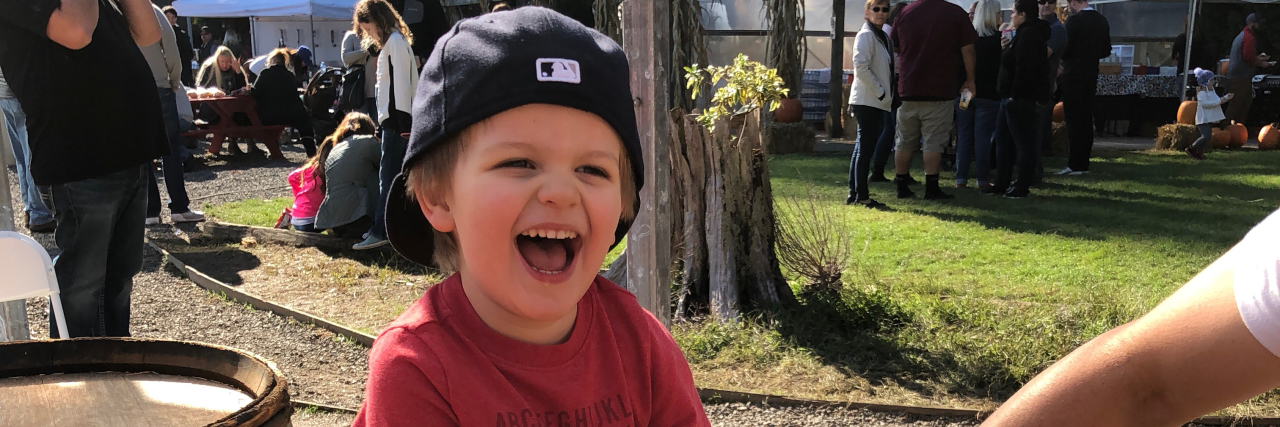“He’s just wired differently.”
We heard this phrase often in those first months after Wilson’s autism diagnosis. We were trying to wrap our heads around this world of autism in which our son was living. It’s a fairly simple phrase, which was almost refreshing given the complexities of this condition we wanted so badly to understand. We’ve since learned that for us, autism is in the moment. It’s unpredictable. Some days it is two steps forward, and one step back. It’s phases you cannot wait to get out of, and moments you want to freeze in time. It’s taking the long way. Routine andrRepetition. Pure innocence. Unconditional love and loyalty. It’s falling down and getting back up.
Wilson is a typical toddler who loves being tickled and chased. He’s into anything that involves jumping, bouncing and spinning. The faster the better. He loves music, building, blowing out birthday candles (it doesn’t matter whose birthday it is), and dressing like his daddy. He loves anything and everything to do with pirates, trains and keys.
What makes him so different? This is where the wonderful comes in…
He is absolutely enamored with his shadow and reflection. He prefers (will only eat) his peanut butter and jelly sandwiches open-faced and cut into bite-sized pieces. He has mastered running away with his pants around his ankles during a diaper change. Sometimes his mind and senses are so overloaded that he quite simply needs to be wrapped up tightly in a hug.
He says, “You’re welcome!” whenever someone on the television says “thank you.”
Scripting (reciting lines from movies, books, songs etc.) was Wilson’s first major vehicle for speaking. He could recite scenes from his favorite cartoon and sing songs before he could say “mama.”
Eventually, Wilson learned to use some of those phrases to communicate in his day-to-day life. When he wants you to read him a story, he’ll hand you a book and say, “Once upon a time.” Every time he finishes in the bathroom he’ll say “Fantastic! All done!” with his arms in the air.
Much of his speech started as echolalia (repeating what he hears, verbatim.) When I would say, “bye, Wilson” he would reply, “bye, Wilson.” Echolalia is a common way for toddlers to learn and practice language, however, children with autism can have echolalia much further into childhood. There were times it felt as though he would just repeat me forever.
While tucking Wilson into bed one night, I said “I love you” and he replied, “I love you, mommy.”
Mommy.
He added that all on his own. He wasn’t just repeating me anymore, he was beginning to express his own thoughts and responses. That one single word fed my soul so much hope that night. It seems so simple, but for him, it was a remarkable step. I remember every single moment of that exchange, and it was nothing short of wonderful.
Follow this journey at Wilson’s Climb.

